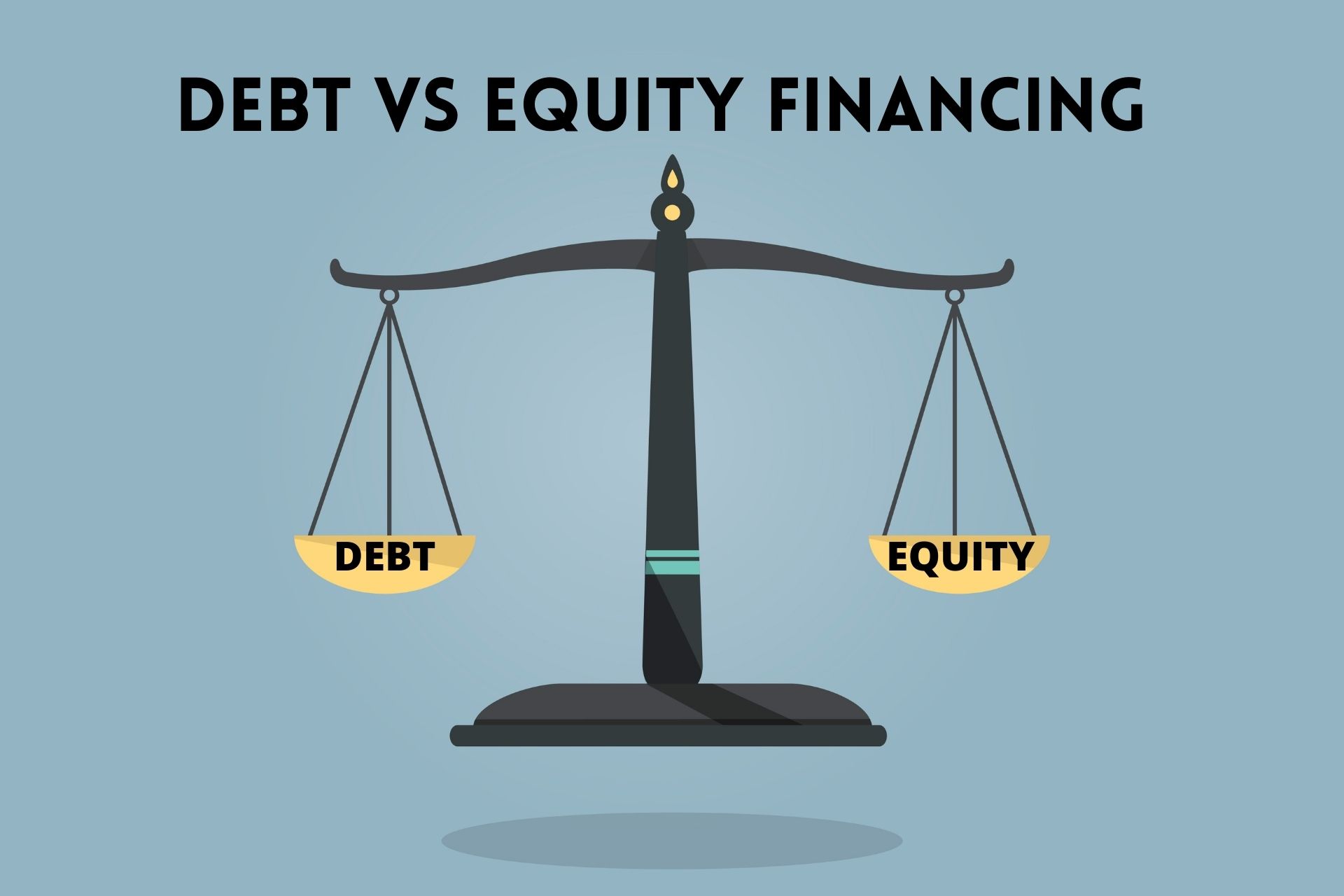

Finance
Accounting Vs Finance Which Is Harder
Published: October 13, 2023
Discover the key differences between accounting and finance and find out which field is more challenging. Gain a deeper understanding of the complexities and demands of finance.
(Many of the links in this article redirect to a specific reviewed product. Your purchase of these products through affiliate links helps to generate commission for LiveWell, at no extra cost. Learn more)
Table of Contents
Introduction
When it comes to the fields of accounting and finance, they often go hand in hand but have distinct differences. Both accounting and finance are critical components of any business, providing essential insights into the financial health and performance of an organization. However, they require distinct skills and expertise.
In this article, we will delve into the world of accounting and finance, exploring their differences, the skills required for each, and the challenges professionals face in these fields. Whether you are considering a career in finance or accounting, or simply want to understand more about these areas, this article will provide valuable insights.
Accounting involves the recording, analyzing, and reporting of financial transactions. It focuses on providing accurate and timely financial information to stakeholders, such as management, investors, and regulatory agencies. Accounting professionals ensure that financial records are maintained accurately and in compliance with the relevant accounting standards.
On the other hand, finance is the discipline of managing money and making financial decisions. It deals with the study of how individuals, businesses, and organizations allocate resources over time, taking into account various factors such as risk and return. Finance professionals help organizations optimize their financial performance by making informed decisions about investments, funding, and risk management.
While accounting and finance overlap to some extent, there are distinct differences between the two fields. Accounting is more focused on the past, looking at historical financial data and ensuring compliance with accounting principles and regulations. In contrast, finance is more future-oriented, analyzing data to make strategic financial decisions that will impact the organization’s performance moving forward.
In the next sections, we will explore the key differences between accounting and finance, the required skills for each field, the challenges that professionals face, and even provide some case studies comparing the two. Let’s dive in!
Overview of Accounting
Accounting is the process of recording, analyzing, and reporting financial transactions of a business. It provides stakeholders with information about the company’s financial performance, position, and cash flows. Accounting plays a vital role in decision-making, assisting management in planning, controlling, and evaluating the organization’s activities.
There are several branches of accounting, including financial accounting, management accounting, and auditing. Financial accounting focuses on preparing financial statements that adhere to the generally accepted accounting principles (GAAP). These statements, which include the balance sheet, income statement, and cash flow statement, provide an overview of the company’s financial status.
Management accounting, on the other hand, is used for internal purposes, providing financial information to management for decision-making and performance evaluation. It involves budgeting, cost analysis, variance analysis, and other techniques to support strategic planning and control within the organization.
Another critical aspect of accounting is auditing, which involves examining financial records and statements to ensure accuracy and compliance with regulations. Auditors play a crucial role in providing assurance to stakeholders that the financial information is reliable and trustworthy.
Accountants utilize various tools and techniques to perform their duties. They use accounting software to record and process financial transactions, create reports, and analyze data. Excel spreadsheets and other financial software are commonly used to perform calculations and financial analysis.
Additionally, accountants must stay updated with the evolving accounting standards and regulations to ensure compliance. They may need to interpret complex financial transactions and apply accounting principles to accurately record and report them.
In summary, accounting is a fundamental aspect of business operations. It provides stakeholders with valuable insights into the financial health of a company and assists in decision-making processes. The field of accounting offers various career paths and opportunities for professionals to contribute to the success of organizations.
Overview of Finance
Finance is a broad field that encompasses the management of money and investments. It revolves around the study of how individuals, businesses, and organizations allocate resources, make financial decisions, and manage risk. Finance professionals play a crucial role in helping organizations optimize their financial performance and achieve their goals.
One key area of finance is corporate finance, which focuses on the financial decisions made within organizations. This includes assessing investment opportunities, determining the optimal capital structure (i.e., the mix of debt and equity financing), and managing cash flow. Corporate finance professionals deal with issues such as capital budgeting, financial forecasting, and financial risk management.
Investments and securities are another important aspect of finance. Professionals in this field analyze and manage investment portfolios, evaluating the risk and return of various assets. They utilize financial models, market analysis, and risk management techniques to make informed investment decisions on behalf of individuals or organizations.
Financial institutions, including banks and insurance companies, also operate within the finance industry. Professionals in this sector deal with lending and borrowing, risk assessment, asset management, and insurance underwriting. They play a significant role in providing financial services to individuals and businesses.
Financial markets are a crucial component of the finance field. Professionals in this area monitor and analyze market trends, trade stocks, bonds, currencies, and other financial instruments. They assess market conditions, evaluate investment opportunities, and execute trades to maximize returns.
Technology has had a profound impact on the finance industry, transforming the way financial transactions are conducted. Fintech, short for financial technology, encompasses the use of technology to improve financial services, streamline processes, and enhance customer experiences. Innovation in areas such as mobile banking, online trading platforms, and digital payment systems has revolutionized the finance industry.
In summary, finance is a dynamic field that deals with the management of money, investments, and financial decisions. It plays a vital role in ensuring the efficient allocation of resources and the achievement of organizational objectives. Finance professionals utilize a range of tools, techniques, and technologies to analyze markets, manage investments, and mitigate risk.
Key Differences Between Accounting and Finance
While accounting and finance are closely related, there are several key differences between the two fields. Here are some of the main differentiating factors:
- Focus: Accounting primarily focuses on recording, analyzing, and reporting financial transactions. It is concerned with providing accurate and timely financial information to stakeholders. Finance, on the other hand, is more focused on making financial decisions, managing investments, and optimizing the financial performance of an organization.
- Time Perspective: Accounting is more historical in nature, dealing with past financial transactions and events. Accountants review and analyze financial data to prepare financial statements and assess the financial position of a business. Finance, on the other hand, is future-oriented, looking at financial data to make projections, analyze investment opportunities, and develop strategies to drive future growth.
- Skills Required: While both accounting and finance require a strong foundation in financial knowledge, the specific skills needed differ. Accounting professionals need to have a solid understanding of accounting principles, regulatory compliance, and financial reporting standards. They should possess strong attention to detail and analytical skills. Finance professionals, on the other hand, need to be proficient in financial analysis, investment evaluation, risk management, and strategic decision-making. They should have strong quantitative skills and the ability to interpret market trends and data.
- Audience: Accounting information is primarily intended for internal and external stakeholders, such as management, investors, creditors, and regulatory agencies. It provides them with a comprehensive view of the financial performance and position of an organization. Finance information, on the other hand, is often used by internal decision-makers, such as executives and managers, to make strategic financial decisions and allocate resources.
- Scope: Accounting encompasses various sub-disciplines, including financial accounting, management accounting, and auditing. Each sub-discipline serves a specific purpose within the accounting profession. Finance, on the other hand, covers a broader range of areas, including corporate finance, investments, financial markets, and financial planning. Finance professionals may specialize in a particular area based on their interests and career goals.
While these are some of the fundamental differences between accounting and finance, it’s important to note that both fields are interconnected and rely on each other to provide a complete understanding of an organization’s financial situation. Both accounting and finance professionals play critical roles in managing an organization’s financial health and contributing to its success.
Required Skills for Accounting
Accounting is a complex field that requires a specific set of skills and knowledge. Whether you’re pursuing a career as a professional accountant or looking to improve your accounting abilities, here are some essential skills you should possess:
- Strong Numerical Aptitude: As an accountant, you’ll be dealing with numbers on a daily basis. A strong foundation in mathematics and a natural affinity for working with numbers is essential for accurate calculations and financial analysis.
- Attention to Detail: Accounting involves dealing with intricate financial records and data. The ability to pay close attention to detail is crucial to ensure accuracy in recording transactions, preparing financial statements, and analyzing financial information.
- Knowledge of Accounting Principles and Standards: A solid understanding of accounting principles and standards, such as Generally Accepted Accounting Principles (GAAP) or International Financial Reporting Standards (IFRS), is essential. This knowledge provides the framework for accurately recording financial transactions and preparing reliable financial statements.
- Analytical Skills: Accountants need to analyze financial data, identify trends, and interpret the information to provide meaningful insights. Strong analytical skills allow accountants to identify patterns, analyze variances, and make informed financial decisions.
- Proficiency in Accounting Software: In today’s digital age, proficiency in accounting software is crucial. Accountants use software programs to record transactions, prepare financial reports, and analyze financial data. Being proficient in popular accounting software, such as QuickBooks or Sage, can greatly enhance your productivity and efficiency.
- Communication Skills: Effective communication is essential in accounting as accountants often interact with different stakeholders, including colleagues, clients, and auditors. The ability to convey financial information clearly and concisely is important, whether it’s through written reports or verbal presentations.
- Ethical Conduct: Accountants handle sensitive financial information and are entrusted with maintaining the integrity of financial records. Upholding high ethical standards is crucial to maintain the trust of stakeholders and comply with professional codes of conduct.
These are just a few of the key skills required for a successful career in accounting. As technology continues to advance and accounting practices evolve, staying updated with the latest developments in the field and continuously developing your skills will be crucial for long-term success.
Required Skills for Finance
Working in the field of finance requires a diverse skillset that combines analytical, strategic, and interpersonal abilities. Whether you’re considering a career in finance or looking to enhance your existing skills, here are some key skills that are essential for success:
- Financial Analysis: Proficiency in financial analysis is a fundamental skill for finance professionals. This involves the ability to interpret financial statements, assess company performance, analyze investment opportunities, and evaluate risk and return ratios.
- Quantitative Skills: Finance professionals need to be comfortable with numbers and possess strong quantitative skills. They must be able to apply mathematical and statistical concepts to analyze financial data, create financial models, and perform financial calculations.
- Strategic Thinking: Finance professionals often have to make critical decisions that impact the financial well-being of an organization. Having strong strategic thinking skills allows them to analyze complex situations, identify potential risks and opportunities, and develop effective financial strategies.
- Knowledge of Financial Markets: Understanding financial markets and their dynamics is essential for finance professionals. This includes staying informed about market trends, economic indicators, and the factors that influence investment performance.
- Risk Management: Identifying and managing risk is a critical skill in finance. Finance professionals need to assess potential risks associated with investments, develop risk mitigation strategies, and evaluate risk-return trade-offs.
- Communication Skills: Effective communication is crucial in finance, as professionals need to clearly articulate complex financial concepts and strategies to diverse stakeholders. Strong written and verbal communication skills are essential for presenting financial information, collaborating with colleagues, and building relationships with clients and investors.
- Attention to Detail: Like accounting, finance requires a high level of attention to detail. Finance professionals must carefully analyze and review financial data to identify errors, inconsistencies, or inaccuracies that could impact decision-making processes.
- Technology Proficiency: Technology plays a significant role in finance, from utilizing financial modeling software to accessing real-time market data. Being proficient in financial software, spreadsheet applications, and data analysis tools is important for efficient financial analysis and reporting.
- Ethical Conduct: Ethics and integrity are essential in finance, as professionals often handle sensitive financial information and make strategic financial decisions. Upholding ethical standards and maintaining confidentiality are critical for building trust with clients, colleagues, and stakeholders.
Developing and honing these skills will enable finance professionals to excel in their roles, whether they are working in corporate finance, investment banking, financial planning, or any other finance-related field.
Challenges in Accounting
Accounting is a complex field that comes with its fair share of challenges. Whether you’re an accounting professional or studying to become one, it’s important to be aware of the obstacles that can arise in this profession. Here are some of the key challenges faced by accountants:
- Evolving Regulations: Accounting standards and regulations are constantly evolving to keep up with changes in the business landscape. Staying updated with these changes and ensuring compliance can be a challenge for accountants, especially in industries with specific reporting requirements, such as healthcare or financial services.
- Technology Integration: The integration of technology has transformed the accounting industry. While it has streamlined many processes, it has also presented challenges. Accountants need to adapt to new accounting software, data analytics tools, and automated systems, requiring ongoing learning and upskilling.
- Data Accuracy and Integrity: Ensuring the accuracy and integrity of financial data can be a challenge, especially when dealing with large volumes of information. Accountants need to implement robust internal controls, perform regular audits, and reconcile data to mitigate the risk of errors or fraud.
- Complex Transactions: Accounting for complex transactions, such as mergers and acquisitions, international operations, or revenue recognition, can be challenging. Accountants need to have a deep understanding of relevant accounting principles and standards to accurately record and report these transactions.
- Time Sensitivity: Accountants often have to work under tight deadlines, such as month-end or year-end reporting periods. This can create high-pressure situations and require efficient time management skills to meet deadlines while maintaining accuracy and quality.
- Cross-Functional Collaboration: Accountants often need to collaborate with professionals from other departments, such as finance, operations, and legal, to gather information and complete tasks. Effective communication and collaboration skills are essential to facilitate smooth interactions and ensure accurate financial reporting.
- Ethical Dilemmas: Accountants often encounter ethical dilemmas in their profession, such as pressures to manipulate financial reports, conflicts of interest, or concerns regarding data privacy. Upholding ethical conduct and making sound ethical decisions is crucial to maintain the integrity and reputation of the accounting profession.
Accountants must be prepared to face these challenges head-on. Staying up-to-date with evolving regulations, embracing technology advancements, continuously developing skills, and maintaining ethical conduct are key strategies to overcome these challenges and thrive in the dynamic accounting landscape.
Challenges in Finance
The field of finance presents various challenges for professionals working in this dynamic industry. Whether you’re a financial analyst, investment manager, or corporate finance executive, it’s important to be aware of the hurdles that may arise. Here are some common challenges in finance:
- Market Volatility: Financial markets are inherently volatile, subject to fluctuations and uncertainties. The challenge for finance professionals lies in analyzing market trends, assessing risks, and making informed investment decisions in a rapidly changing environment.
- Risk Management: Finance professionals are involved in managing various types of risk, such as market risk, credit risk, and liquidity risk. Developing and implementing effective risk management strategies is crucial to protect investments and financial assets.
- Complex Financial Instruments: With the emergence of complex financial products and derivatives, understanding and valuing these instruments can be challenging. Finance professionals need to possess advanced knowledge and analytical skills to navigate the intricacies of these instruments.
- Regulatory Compliance: The finance industry is highly regulated, with strict compliance requirements enforced by regulatory bodies. Finance professionals must stay up-to-date with evolving regulations, such as those related to financial reporting, anti-money laundering, and data privacy.
- Data Management and Analysis: With the abundance of data available, finance professionals face the challenge of effectively managing and analyzing large volumes of financial information. Utilizing data analysis tools and techniques, such as data visualization and modeling, is crucial in extracting meaningful insights from vast datasets.
- Global Financial Complexity: In an interconnected world, finance professionals often deal with cross-border transactions and diverse regulatory frameworks. Understanding the intricacies of global finance, including currency fluctuations, international taxation, and trade policies, can pose significant challenges.
- Ethics and Integrity: Maintaining ethical conduct is a continuous challenge in the finance industry. Finance professionals must navigate ethical dilemmas, such as conflicts of interest, insider trading, and ensuring transparency in financial reporting. Upholding high ethical standards is crucial for building trust and preserving the reputation of individuals and organizations in the finance field.
To overcome these challenges, finance professionals must embrace continuous learning, keep abreast of industry trends, and develop strong analytical and decision-making skills. Adapting to technological advancements, cultivating a global mindset, and adhering to ethical principles are also vital to excel in the ever-evolving field of finance.
Case Studies Comparing Accounting and Finance
Examining real-life case studies can provide valuable insights into the differences and interactions between accounting and finance. Here are a few examples that illustrate the unique aspects of these two fields:
- Mergers and Acquisitions: In a company merger, accounting and finance teams play distinct roles. The accounting team is responsible for assessing the fair market value of assets and liabilities, ensuring compliance with accounting standards when consolidating financial statements, and identifying potential risks or contingent liabilities. The finance team, on the other hand, evaluates the financial viability of the merger, performs financial due diligence, and assesses the potential synergies and financial impact of the transaction.
- Investment Analysis: Consider the case of evaluating an investment opportunity. The accounting team focuses on assessing the historical financial performance of the investment target, analyzing financial statements for trends and ratios, and performing due diligence to ensure accuracy in financial reporting. The finance team, on the other hand, evaluates the investment’s potential return, conducts risk analysis, and assesses the feasibility of the investment based on market conditions, competitor analysis, and economic factors.
- Financial Planning and Budgeting: When it comes to financial planning and budgeting, accountants focus on collecting and analyzing historical financial data, identifying costs, and projecting revenues. They create budgets and forecasts to provide insights into the company’s financial performance. Finance professionals, on the other hand, utilize this information to assess the financial health of the organization, allocate resources strategically, and determine funding requirements that align with the organization’s goals.
- Financial Reporting and External Audits: Accounting teams are responsible for preparing accurate and reliable financial statements, ensuring adherence to accounting standards. External audits are performed by independent auditors who assess the fairness and accuracy of the financial statements. Finance professionals, while not directly involved in preparing the financial statements, utilize this audit information to gain assurance about the financial health of the organization, identify areas for improvement, and make strategic financial decisions.
These case studies illustrate the interplay between accounting and finance in different scenarios. While accounting predominantly deals with recording and reporting financial information, finance takes a broader perspective, focusing on strategic decision-making, evaluating investments, managing risk, and optimizing financial performance.
Understanding these case studies highlights the importance of collaboration between accounting and finance teams within organizations. By leveraging their respective expertise and insights, organizations can make informed decisions, enhance financial performance, and ensure compliance with accounting principles and regulations.
Conclusion
Accounting and finance are interconnected disciplines that are crucial for the success and sustainability of organizations. While accounting focuses on recording, analyzing, and reporting financial transactions, finance encompasses a broader range of activities, such as investment analysis, financial planning, and risk management.
In the world of accounting, professionals must possess strong numerical skills, attention to detail, and a deep understanding of accounting principles and regulations. They are responsible for maintaining accurate financial records, preparing financial statements, and ensuring compliance with standards. On the other hand, finance professionals need a strategic mindset, strong analytical capabilities, and a deep understanding of financial markets. They are tasked with making informed financial decisions, managing investments, and optimizing an organization’s financial performance.
In both accounting and finance, professionals face various challenges. They need to adapt to evolving regulations, embrace technological advancements, and meet time-sensitive demands. Ethical conduct is crucial in maintaining the trust of stakeholders and upholding the integrity of both fields.
While accounting and finance have their distinct roles and responsibilities, they are inherently interconnected. Accountants provide the financial data and analysis required by finance professionals to make informed decisions. Collaboration between the two is necessary to ensure accurate financial reporting, effective financial planning, and strategic decision-making.
By understanding the differences, required skills, challenges, and case studies in accounting and finance, individuals can make informed career choices and organizations can leverage the expertise of both fields to drive success.
In conclusion, accounting and finance are integral components of modern businesses. They offer diverse career paths and opportunities for professionals to contribute to the financial health and growth of organizations. By recognizing and embracing the unique aspects of accounting and finance, individuals can excel in their chosen fields and make significant contributions to the financial well-being of organizations.














